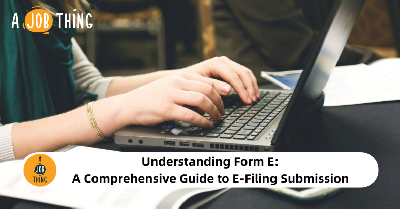
What The Law Says About Workplace Discrimination
Create Job Description Using AI
Write appealing job descriptions for any job opening to attract the most qualifield and suitable candidates. FOR FREE.
try now
Lately, we’ve heard news about workplace discrimination in Malaysia. In January 2018, The Human Resources Ministry proposed an amendment to the Employment Act to address discrimination at the workplace. But until an amendment takes place, we will have to rely on existing laws to address workplace discrimination.
Federal Constitution
The primary source of law is Malaysia’s Federal Constitution which reserves us certain rights. Whenever an allegation of discrimination is made, it involves infringement of more than 1 article under the constitution.
For example, if an employer bans employees from wearing the hijab, it would engage article 8 (right to equality) and article 11 (freedom of religion) of the constitution.

Since the constitution is the supreme law of the land, any exemption will require justification which is based on legitimate grounds (the rights guaranteed under the constitution are NOT ABSOLUTE). Rest assured, Malaysians’ basic rights are protected.
However, this view of the constitution is usually contradicted by evidence. Since the constitutional rights are drafted generally, their actual application depends on court’s interpretation. On certain occasions, individuals have few alternatives to justice in discrimination cases, for these two reasons:
-
The constitutional law does not extend its substantive or procedural provisions to infringements of an individual’s legal right by another individual. The reference to the ‘law’ in article 8 of the constitution does not include agreements. This refers to the case of Beatrice a/p AT Fernandez v Sistem Penerbangan Malaysia & Ors [2005] 3 MLJ 681
-
Individuals have the option to walk away from agreements which infringe their constitutional right. Having already agreed on such terms, the individual should not be allowed to come to court to seek justice. This refers to the case of Nurul Shamimi Zainul Ariffin v Universiti Pertahanan Nasional Malaysia & Anor [2017] 1 LNS 1740
There are also situations of employers blatantly specifying their preference for certain races in job vacancies or job applications such as “Chinese only” and “Malay only”. Though many have argued that these discriminatory practices violates the Federal Constitution, cases on discrimination will fail if they involve infringement of an individual’s legal right by another individual / entity (for example: a private sector employee) as a result of the Federal Court’s decision in Beatrice a/p AT Fernandez.
Even without advertising their preference, employers can still reject candidates for discriminatory reasons anyway. Employers are under no obligation to inform candidates why they were rejected, which means it would be difficult to prove that such discriminatory practices actually happened.

The challenge to bring a discrimination case is further magnified by the lack of clarity as to what amounts to discrimination. This is because the constitution reads article 8 as “[a]ll persons are equal before the law and entitled to equal protection. No discrimination on grounds of race, descent, place of birth, or gender.”
This challenge is shown in the case of Noorfadilla bt Ahmad Saikin v Chayed bin Basirun & Ors [2012] 1 MLJ 832 where the court had to decide if termination on the grounds of a person’s pregnancy was an act of discrimination based on gender.
Legislation
The laws on discrimination under Malaysian statues are quite limited to very specific examples.
-
Industrial Relations Act 1967, section 5(1)(c): provides that employers cannot discriminate against any person when it comes to employment, promotion, any condition of employment or working conditions on the ground that they are or are not a member or officer of a trade union.
-
Employment Act 1955, section 60L(1): provides that employees (foreign/local) can file a complaint to the Director General on the grounds that they are being discriminated against in relation to a foreign or local employee in respect of the terms and conditions of their employment.
Other than the protection from discrimination on account of the employee’s trade union membership or nationality, there are no specific statutes enacted for the sole purpose of prohibiting discriminatory practices in the workplace
An employee who is terminated on discriminatory grounds (due to religious beliefs or for being a certain race) will be able to seek recourse by filing a representation of unfair dismissal.
Termination due to discriminatory practices without any other compelling basis is likely to be viewed by the Industrial Court as a termination “without just cause and excuse”. But, this recourse would only be available in termination situations only, and not pre-employment practices.
Need to Fill in Many Vacancies, Fast? We'll solve your hiring in just 2 days. Contact us at [email protected] or call 03 2242 4822 for a free consultation.
Source: Donovan & Ho
Related articles
Employee Background Check: A Cautionary Tale
What HR Need to Know About the Proposed Changes to the Industrial Relations Act 1967





